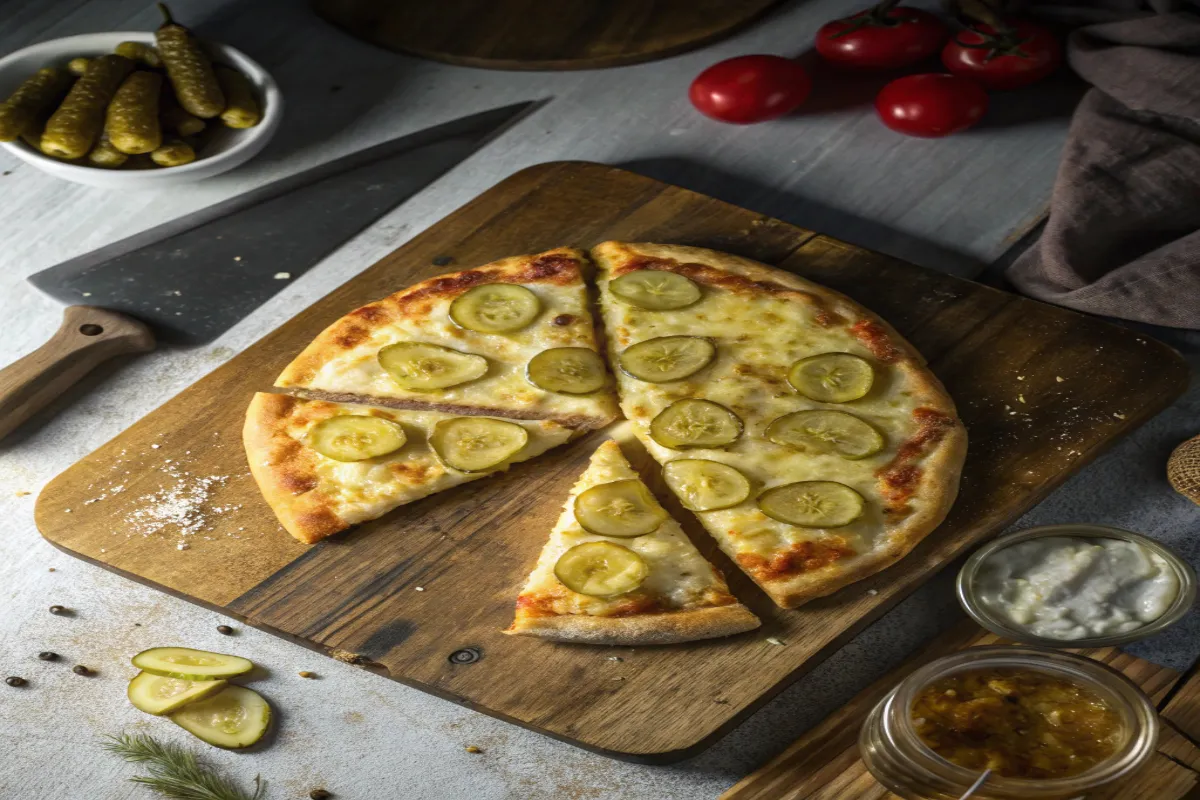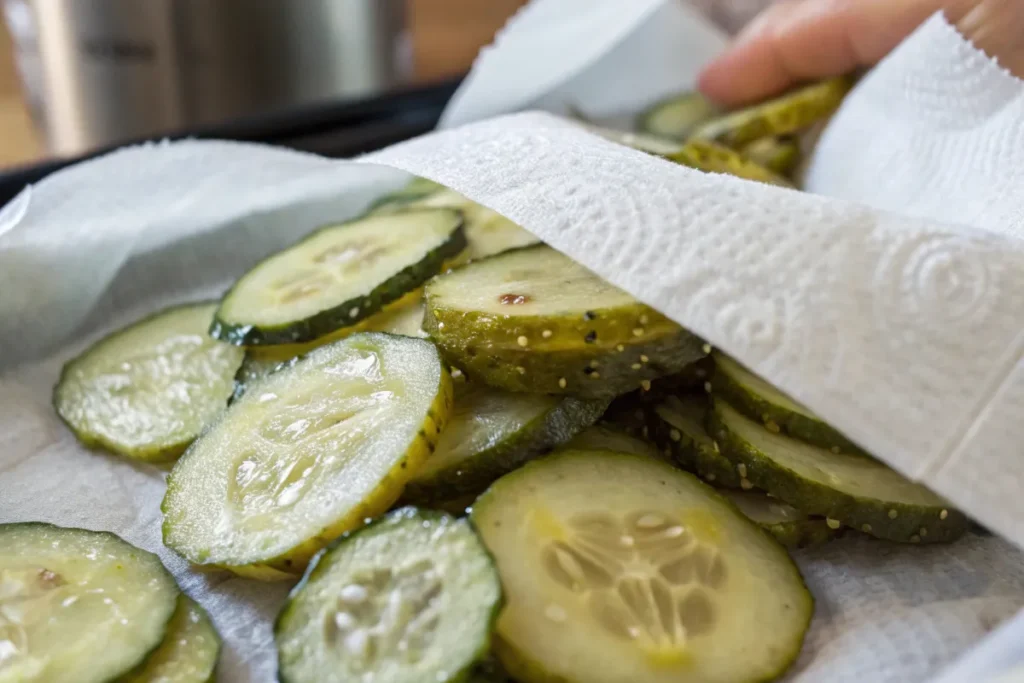Pickle pizza is a quirky, crave-worthy recipe that blends creamy white sauce, gooey mozzarella, and tangy pickles. But one common frustration for home cooks is the dreaded soggy crust. No one wants a limp slice that can’t hold its toppings. The good news? A few simple adjustments can guarantee a crisp, golden base every time.
If you’re new to this viral trend, start with our Dill Pickle Pizza Recipe — The Viral TikTok Trend You Have to Try. Then, use the tips below to perfect your homemade version.
Why Does Pickle Pizza Get Soggy?
The issue usually comes down to excess moisture. Here’s what causes it:
- Pickles hold lots of brine. Sliced pickles release liquid as they bake, which seeps into the crust.
- Too much white sauce. Ranch, garlic cream, or crème fraîche add flavor but can overload the base.
- Fresh mozzarella. While delicious, fresh mozzarella has high water content compared to low-moisture cheese.
- Thick crusts. Dough that’s too dense may not bake through before toppings release liquid.
Understanding these factors is the first step in learning how to make crispy pickle pizza at home.
Solutions: How to Keep Pickle Pizza Crispy
1. Pat Pickles Dry
Use a paper towel to blot pickle slices before adding them to the pizza. Removing excess brine prevents moisture pooling on the crust.
2. Go Light on Sauce
Spread a thin layer of crème fraîche, ranch, or garlic sauce. Just enough to cover the dough works best—extra sauce increases sogginess.
3. Use Low-Moisture Cheese
Swap fresh mozzarella for low-moisture part-skim mozzarella. It melts beautifully without flooding your crust.
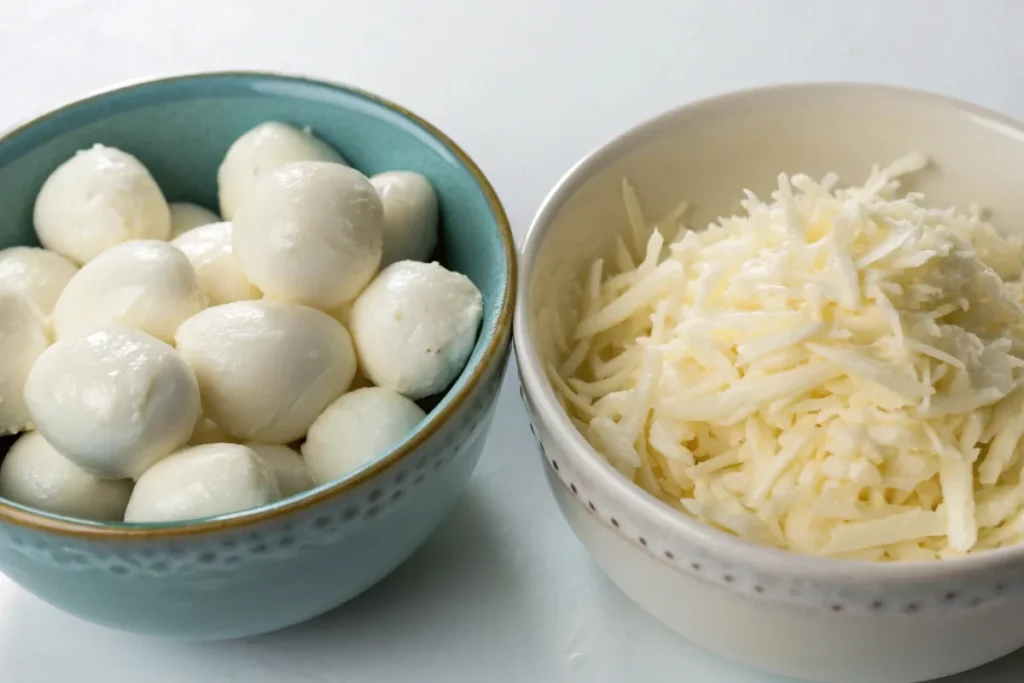
4. Pre-Bake the Crust
Bake your dough for 3–5 minutes before adding toppings. This creates a firmer base that resists sogginess.
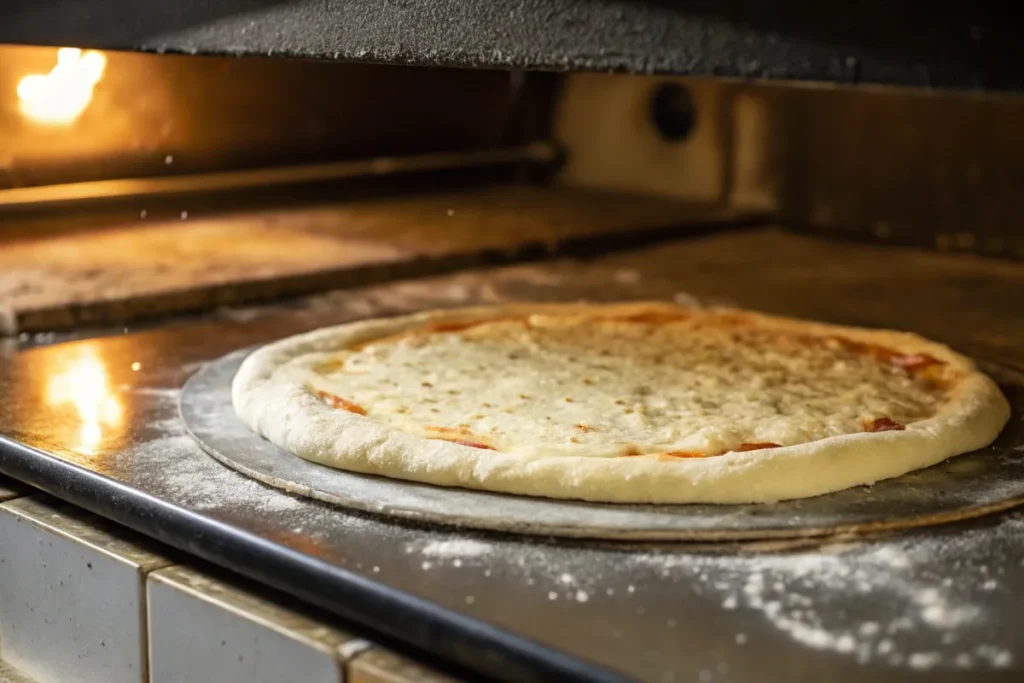
5. Bake Hot and Fast
Keep your oven temperature around 475°F (245°C). High heat crisps the crust before toppings release too much liquid.
Best Ovens & Bake Times
Different baking setups affect crispiness:
- Pizza Stone: 10–12 minutes. Holds heat evenly, giving a firm bottom.
- Pizza Steel: 8–10 minutes. Intense heat = restaurant-style crunch.
- Sheet Pan: 12–15 minutes. Slightly softer but reliable for home cooks.
- Air Fryer (mini pizzas): 400°F for 5–7 minutes. Quick, crisp, and great for single servings.
Whichever method you use, place the pizza on a preheated surface for maximum crisp.
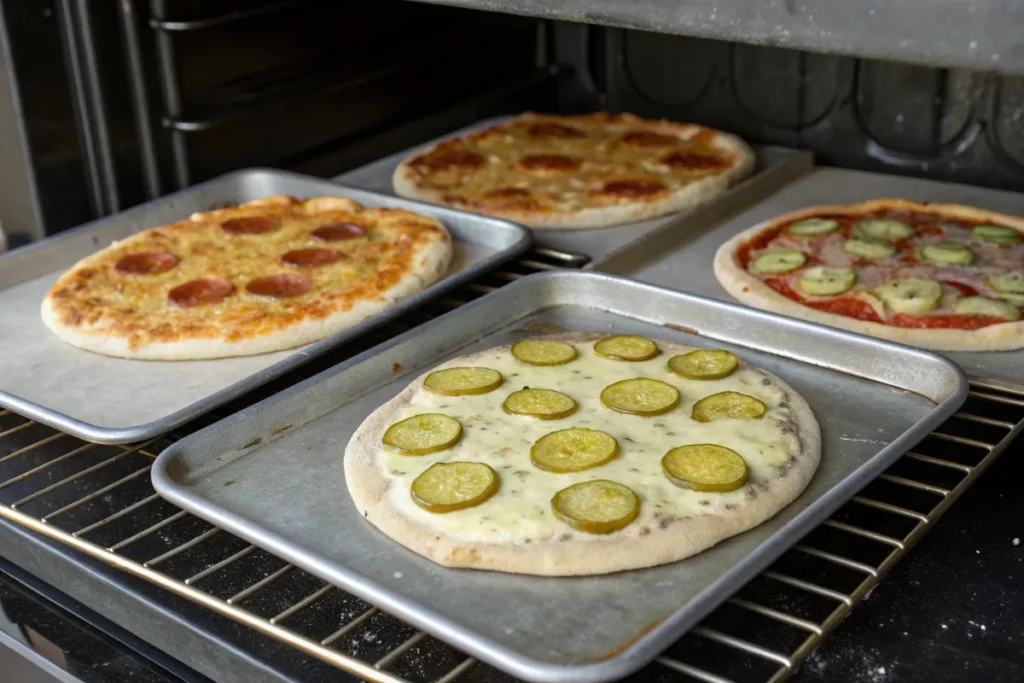
Quick Crust Hacks
Want extra insurance against sogginess? Try these shortcuts:
- Brush the dough with olive oil before adding sauce. This creates a barrier.
- Dust the base with semolina or cornmeal to keep it dry.
- Go thinner. A thin crust bakes faster and stays crisp.
- Add cheese first, sauce second. An “upside-down” method that helps protect the crust.
These tips turn a messy pie into a slice-worthy dinner.
Final Thoughts
With a few adjustments, you can kiss pickle pizza soggy crust goodbye. Dry your pickles, pre-bake your crust, and stick with low-moisture cheese for the best results. And remember—hotter ovens equal crispier pizzas.
Want to start with the basics? Try our Dill Pickle Pizza Recipe — The Viral TikTok Trend You Have to Try. Then, serve your creation with a creamy side like our Spinach Ranch Dip for the ultimate party spread.
Master these homemade pickle pizza tips, and you’ll be baking crispy, crave-worthy pies every time.
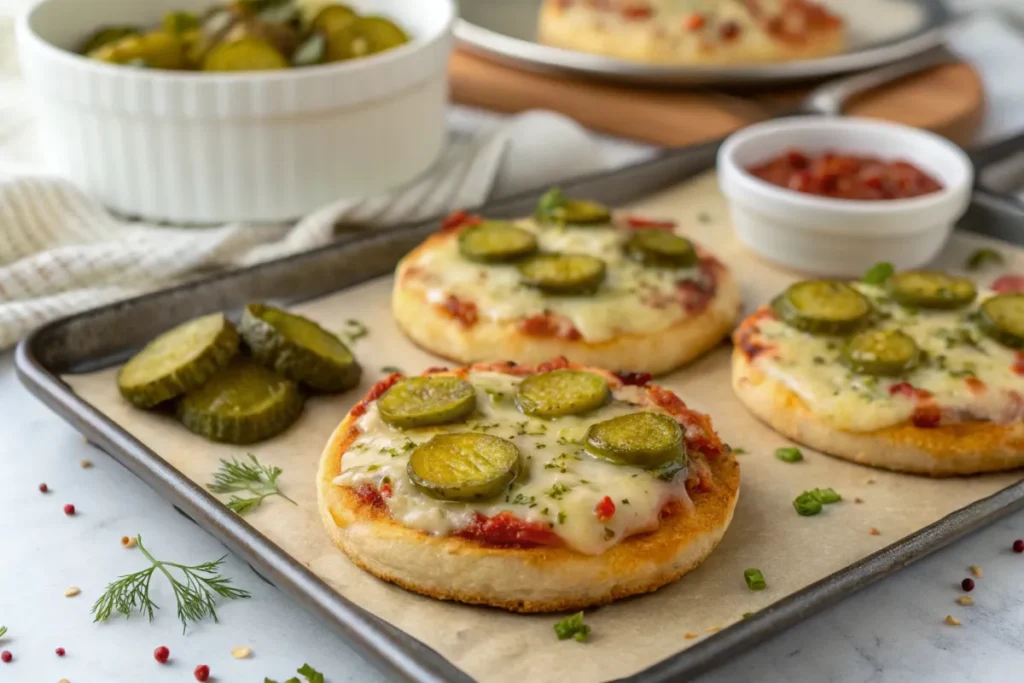
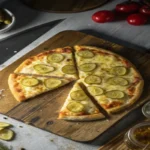
Dill Pickle Pizza
A quirky and crave-worthy recipe that combines creamy white sauce, gooey mozzarella, and tangy pickles while ensuring a crispy crust.
- Total Time: 30 minutes
- Yield: 2 servings 1x
Ingredients
- 1 pizza dough
- 1 cup low-moisture part-skim mozzarella cheese, shredded
- 1/2 cup crème fraîche or ranch dressing
- 1 cup pickles, sliced
- Olive oil, for brushing
- Semolina or cornmeal, for dusting
Instructions
- Preheat your oven to 475°F (245°C).
- Pat pickle slices dry with a paper towel to remove excess moisture.
- Lightly brush the pizza dough with olive oil.
- Spread a thin layer of crème fraîche or ranch dressing on the dough.
- Sprinkle shredded mozzarella evenly over the sauce.
- Place the dried pickle slices on top of the cheese.
- Pre-bake the crust for 3–5 minutes for a firmer base.
- Bake the pizza on a preheated surface for 10-12 minutes until crispy and golden.
Notes
For extra crispiness, dust the base with semolina or cornmeal and consider using an ‘upside-down’ method by adding cheese first and sauce second.
- Prep Time: 15 minutes
- Cook Time: 15 minutes
- Category: Main Course
- Method: Baking
- Cuisine: American
- Diet: Vegetarian
Nutrition
- Serving Size: 1 serving
- Calories: 400
- Sugar: 4g
- Sodium: 800mg
- Fat: 22g
- Saturated Fat: 8g
- Unsaturated Fat: 12g
- Trans Fat: 0g
- Carbohydrates: 38g
- Fiber: 2g
- Protein: 14g
- Cholesterol: 30mg
Keywords: pickle pizza, homemade pizza, crispy crust, dill pickle recipe, viral recipe, party food

